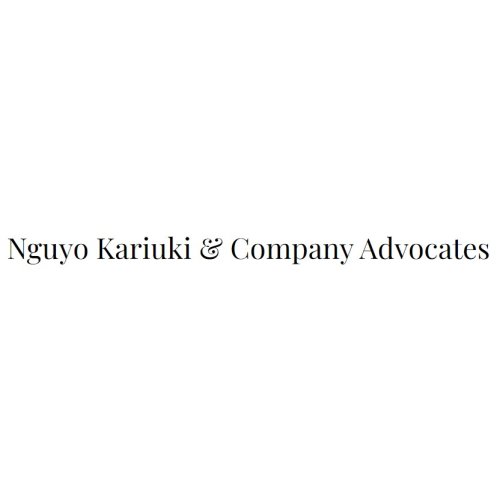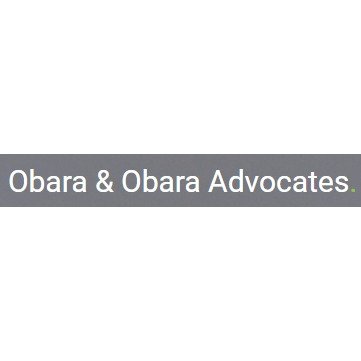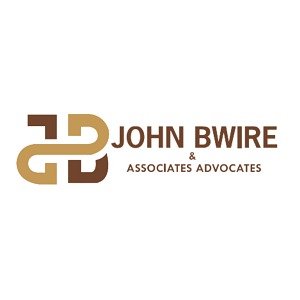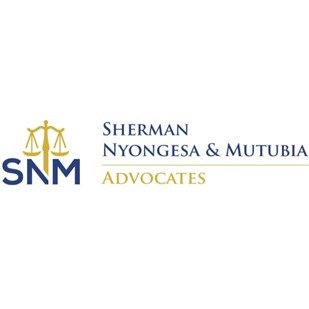Best Sexual Harassment Lawyers in Mombasa
Share your needs with us, get contacted by law firms.
Free. Takes 2 min.
List of the best lawyers in Mombasa, Kenya
About Sexual Harassment Law in Mombasa, Kenya
Sexual harassment in Mombasa, Kenya, is recognized as an important issue that affects individuals in various environments, including workplaces, schools, and public spaces. In Kenya, sexual harassment is defined broadly and includes any unwelcome sexual advances, requests for sexual favors, or other verbal or physical conduct of a sexual nature that has the purpose or effect of interfering with an individual's performance or creating an intimidating, hostile, or offensive environment. The legal framework seeks to protect victims and hold perpetrators accountable, ensuring that complaints are handled in a fair and timely manner.
Why You May Need a Lawyer
Engaging with a lawyer specializing in sexual harassment cases in Mombasa can be beneficial in various situations, including:
- When you are a victim of sexual harassment and need guidance on the legal options available to you, including filing complaints or lawsuits.
- If you are an employer sought by employees for advice related to complaints of sexual harassment within your organization.
- When you need assistance in understanding your rights and responsibilities under the current laws and want to ensure compliance to avoid workplace incidents.
- If you are wrongly accused of sexual harassment and need proper legal representation to defend yourself against false claims.
Local Laws Overview
In Mombasa, as in the rest of Kenya, the Employment Act and other relevant legislation offer protections against sexual harassment. Key aspects include:
- The Employment Act, 2007 mandates employers to have policies in place to address sexual harassment and safeguard employees from such behavior.
- Victims can seek recourse through legal channels such as complaints to the Employment and Labour Relations Court.
- The Penal Code criminalizes certain acts and allows for prosecution of offenders, providing potential criminal sanctions.
- Provisions are in place to protect victims from retaliation after reporting sexual harassment.
Frequently Asked Questions
What constitutes sexual harassment in Mombasa, Kenya?
Sexual harassment involves unwelcome sexual advances, requests for sexual favors, or conduct of a sexual nature that creates a hostile environment. This can occur in workplaces, schools, or public spaces.
How do I report a case of sexual harassment?
Victims can report harassment to their employer, lodge a complaint with the Employment and Labour Relations Court, or contact the police for criminal matters.
What should I do if I am falsely accused of sexual harassment?
If falsely accused, it's crucial to seek legal advice promptly to understand your rights and prepare a defense. It may also involve providing evidence that refutes the claims.
Can employers be held liable for sexual harassment incidents?
Yes, employers can be held accountable if they fail to have adequate policies or do not respond appropriately to complaints. They are required by law to protect their employees from harassment.
What are the potential consequences for perpetrators of sexual harassment?
Consequences can range from disciplinary actions and fines to imprisonment, depending on the severity of the misconduct and whether the case is handled in civil or criminal court.
Is there a statute of limitations for filing a sexual harassment claim?
Yes, there are time limits for filing claims, typically within three years under the Employment Act, but it is best to seek legal advice for specifics.
Are there special protections for vulnerable groups such as students or minors?
Yes, laws provide additional protections for children and vulnerable groups, including stringent penalties for perpetrators who exploit these individuals.
Can sexual harassment cases be resolved outside of court?
Yes, many cases can be resolved through mediation or settlement negotiations, but this often requires legal guidance to ensure a fair and just outcome.
How can I ensure my workplace is free from sexual harassment?
Employers should establish clear policies, provide training, and create an environment where victims feel safe to report any incidents without fear of retaliation.
Does Kenyan law recognize the concept of a hostile work environment?
Yes, the concept is recognized and forms the basis for many complaints where ongoing harassment creates a toxic and intimidating atmosphere for employees.
Additional Resources
Additional support and resources can be found through various organizations and institutions, including:
- Federation of Women Lawyers (FIDA) Kenya: Provides legal aid and advocacy services.
- National Gender and Equality Commission: Monitors and promotes gender equality and freedom from discrimination.
- Local NGOs and support groups: Offer counseling and support services for victims.
- Kenya Human Rights Commission (KHRC): Provides resources and information on legal rights and how to pursue claims.
Next Steps
If you are seeking legal assistance in a sexual harassment case in Mombasa, Kenya, consider the following steps:
- Document any incidents thoroughly, including dates, times, and details of the conduct.
- Contact a qualified lawyer with experience in sexual harassment cases to discuss your situation and explore your options.
- File a formal complaint with your employer if applicable, ensuring you follow any internal processes that exist.
- If necessary, pursue legal action through the courts, guided by your legal counsel.
- Access additional resources and support networks to help you through the process.
Lawzana helps you find the best lawyers and law firms in Mombasa through a curated and pre-screened list of qualified legal professionals. Our platform offers rankings and detailed profiles of attorneys and law firms, allowing you to compare based on practice areas, including Sexual Harassment, experience, and client feedback.
Each profile includes a description of the firm's areas of practice, client reviews, team members and partners, year of establishment, spoken languages, office locations, contact information, social media presence, and any published articles or resources. Most firms on our platform speak English and are experienced in both local and international legal matters.
Get a quote from top-rated law firms in Mombasa, Kenya — quickly, securely, and without unnecessary hassle.
Disclaimer:
The information provided on this page is for general informational purposes only and does not constitute legal advice. While we strive to ensure the accuracy and relevance of the content, legal information may change over time, and interpretations of the law can vary. You should always consult with a qualified legal professional for advice specific to your situation.
We disclaim all liability for actions taken or not taken based on the content of this page. If you believe any information is incorrect or outdated, please contact us, and we will review and update it where appropriate.

















